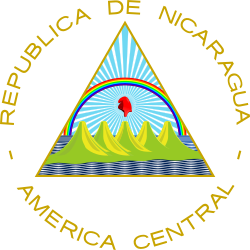 |
|---|
General elections were held in Nicaragua on September 1, 1974, to elect a president and National Congress of Nicaragua.
Contents
"The 1974 election was characterized by abstentionism. There were no incidents on election day; in fact very few people went to the polls, this in spite of the fact that the Supreme Electoral Tribunal reported voter registration of 1,152,268 citizens or 60.8% of the total Nicaraguan population, which is nearly 240,000 more than the number of citizens 18 years and older reported by the Census of 1971. The official results listed 733,662 votes for Somoza and 66,320 for the leader of one faction of the Conservative Party who ran against Somoza. The total percentage of votes cast according to official figures was approximately 69%." [1]
Anastasio Somoza Debayle "won 743,985 out of 815,758 votes cast, the Conservatives picked up their allocation of 40 percent of the seats for fulfilling the tryst and an equal proportion of the electorate abstained. The very predictability of this result provoked a growing number of dissidents from the Conservative and Liberal Parties to join with the Independent Liberal Party, Popular Social Christian Party, Nicaraguan Socialist Party and a number of trade unions in forming the 'Unión Democrática de Liberación' (UDEL)." [2]